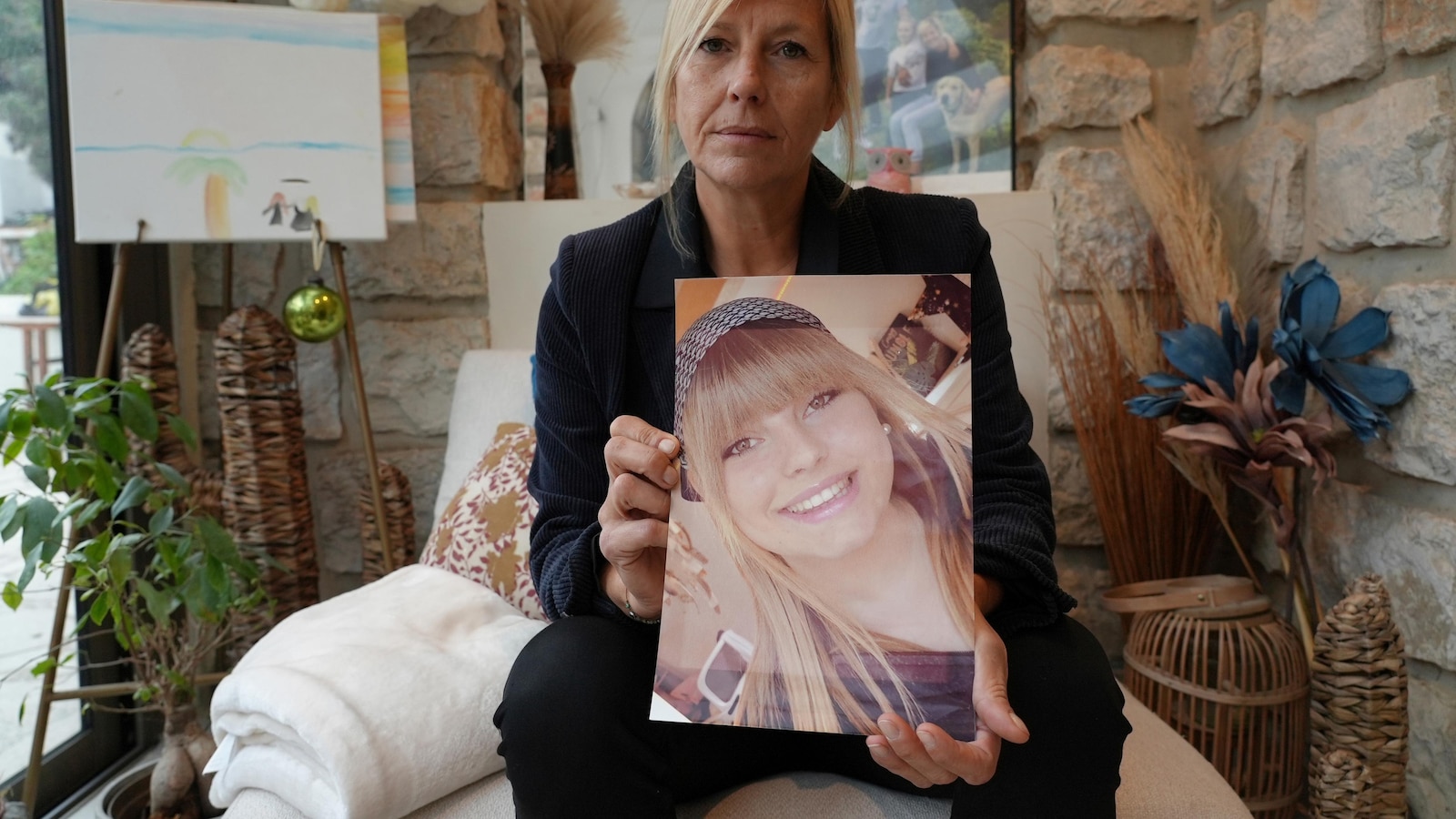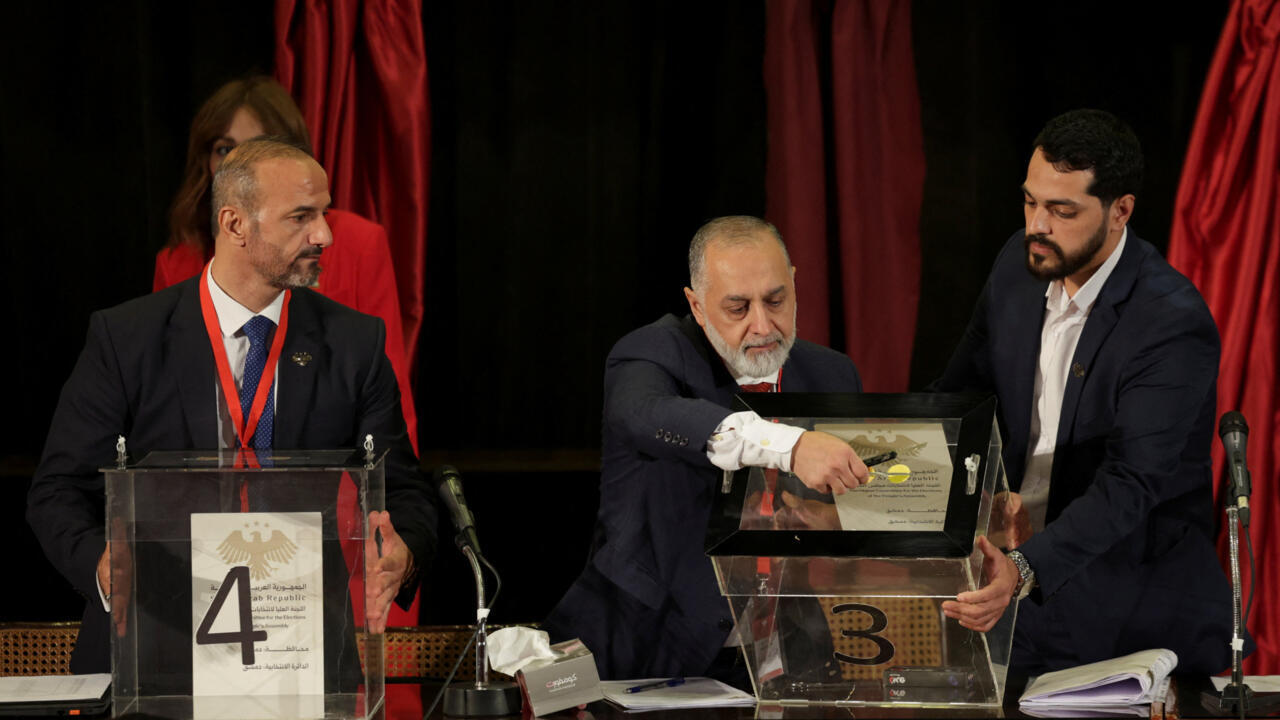
Dr. David Edwards is the General Secretary of Education International, the voice of teachers and other education employees around the world. Through its 386 member organizations, Education International represents over 32.5 million teachers and education support personnel in 178 countries.
Dr. Edwards has led the organization since 2018, after seven years as Deputy General Secretary directing education policy, advocacy, research and communications. Prior to joining Education International, Dr. Edwards was an Associate Director at the National Education Association of the United States. He has worked as an Education Specialist at the Organization of American States and began his career as a public high school teacher.
Education International leads the teachers’ constituency within Education Cannot Wait’s (ECW) governance and, accordingly, Dr. Edwards represents the constituency within the Fund’s High-Level Steering Group.

ECW: Education International is a founding member of ECW. Together with our strategic partners, ECW investments have reached more than 14 million children with the safety, hope and opportunity of a quality education. Why should donors prioritize funding for education through multilateral funds such as ECW?
Dr. Edwards: Multilateral funds are essential to ensuring coordinated and sustainable support for education in emergencies. Let’s remember that they emerged in response to duelling agencies which led to duplication and wasted partners’ time. By pooling resources and aligning efforts across contexts and organizations, they reduce duplication and enable efficient use of funds. For donors facing shrinking aid budgets, this should be a top priority.
Multilateral mechanisms not only ensure that support is not fragmented, they also ensure that it meets local needs. This is thanks to the fundamentally democratic nature of multilateral mechanisms: funds like ECW provide a platform for inclusive decision-making with representation of all stakeholders, from global institutions and national governments to the teaching profession and civil society. From our perspective, it is critical that teacher organizations can meaningfully shape priorities and interventions, including in crisis settings. It ensures that funding decisions reflect the lived realities of teachers on the ground. Democratic representation of teachers also strengthens accountability: transparent and inclusive governance structures make a real difference in monitoring and tracking progress, to ensure that support actually reaches education communities that are most affected. You want to know if a school was built, a resource delivered or impact felt? Ask a teacher.

ECW: We will need 44 million additional primary and secondary teachers worldwide by 2030. On the frontlines of humanitarian crises – where teachers work in dangerous conditions with low pay – the challenges are daunting. How can the global community help we fill this gap?
Dr. Edwards: Millions of the most vulnerable children in the world are being condemned to a life of hardship because they don’t have access to a teacher. Stella Oryang Aloyo, a South Sudanese refugee teacher working in a refugee settlement in Uganda, asked the fundamental question we must keep in mind: “What is education without teachers?”
Classrooms are important but they are not enough. Books are important but they are not enough. Teachers are the heart of any education system and, in crisis contexts, they are all the more important. For children in emergency settings, access to a qualified and well-supported teacher can make the difference between hope for a better future and lifelong destitution and deprivation.
To address this shortage, the global community must invest in teachers in crisis settings as a top priority. This means ensuring that enough teachers are trained, recruited, and paid sufficiently and regularly. This last point is essential. Over the past few years, Education International has consistently warned that delayed, partial or irregular salary payment is one of the most pressing challenges facing teachers in emergencies and we have started documenting this issue. In South Sudan, at the time of publication of our study released in April 2025, teachers on government payroll had not been paid in over a year. In Yemen, Nigeria and many other contexts affected by crises, teachers experience severe delays and issues with the disbursement of their salaries.
These issues stem from fragmented funding, weak payroll systems, but also a lack of prioritization: a study published by INEE in 2022 revealed that the payment of teacher salaries is by far the most challenging area for which to secure funding in education in emergencies.
The impact on the continuity of education is huge because teachers have to look for other sources of revenue to support their families or they leave the profession altogether. As a result, education is disrupted.
This is also a matter of professional dignity: if we all agree that education cannot wait, then we have to acknowledge that teachers cannot wait either, and must take action accordingly.
Governments hold the primary responsibility to support and remunerate their workforce but, when everything falls apart, it is our responsibility as a global community to step up and support teachers. This requires flexible, multi-year funding mechanisms. It also means integrating teacher compensation into both emergency response and long-term recovery plans. If we are serious about ending the global teacher shortage and achieving Sustainable Development Goal 4 (SDG4), we must start by ensuring that every teacher, especially in crisis settings, is paid fully, fairly and on time.
ECW: Teachers are essential in achieving the goal of ensuring quality education for all by 2030 (SDG4). In the face of fast-changing technologies, budget constraints and other converging challenges, how can education be better delivered with coordination, speed and agility on the frontlines of fast-evolving humanitarian crises?
Dr. Edwards: To deliver education effectively in humanitarian crises, we must empower teachers and trust them. Coordination among all humanitarian and development actors is key, and teachers, through their organizations, must have a seat at the table. This will ensure that teachers are part of integrated response plans, not an afterthought.
During the COVID-19 pandemic, the whole world saw how teachers that had the tools, time, training and connectivity were able to adapt quickly and innovate to meet the needs of their students – regardless of the circumstances in which they were teaching. In the rush to deliver agile and cost-effective solutions, we must resist the temptation to prioritize technology over teachers. Speed and agility in education delivery must build upon teacher leadership at all levels, from engaging teacher organizations in designing responses, to trusting and empowering teachers to innovate as they deem appropriate for their students.
Digital technologies will never replace the human connection, contextual understanding and emotional support that teachers provide. This is particularly important in crisis settings, where children often face trauma, displacement and instability. A trained, caring teacher may be the only constant adult presence in children’s lives, offering not just education, but a sense of safety, psychosocial support and, most importantly, hope. I have seen teachers protect their students by creating human tunnels ushering them to safety. I have seen resource-strapped teachers give their own lunch to hungry students. And I have spoken with teachers who have had to throw themselves on top of students to protect them from a bomb blast. I am still waiting for an AI chatbot to outperform us in the area of caring and sacrifice.

ECW: Localization is a hallmark of the UN80 Initiative and Grand Bargain Agreements. How can ECW, Education International and other leading global organizations work together to tap the vast potential of local delivery models?
Dr. Edwards: From our perspective, localization is not just about shifting delivery, it is about shifting power. It begins with trust: global organizations must shift from directing to enabling local actors to lead response efforts. This means investing in local capacity by establishing and supporting mechanisms for social and policy dialogue that bring together education authorities and teacher unions. Such mechanisms ensure that education responses are not only contextually relevant, but also that those who are in charge of implementing them feel a sense of ownership and are fully on board. While funding must reach schools and students, it is equally important to invest in the institutional capacity of local actors to lead, coordinate and monitor implementation on the ground.
At Education International, we are committed to strengthening our members’ capacities, to ensure that teachers and their representatives participate actively and meaningfully in education policy development, implementation, monitoring and evaluation. We have seen multiple micro-innovations blossom into full-scale programmes and badly designed programmes collapse by failing to recognize local realities that any teacher could spot. We systematically and purposefully build spaces for local expertise to be shared and strengthened. By working together in this direction, we can contribute to building education systems that are more resilient, sustainable and accountable.
ECW: We all know that ‘readers are leaders,’ and that reading skills are key to every child’s education. What are three books that have most influenced you personally and/or professionally?
Dr. Edwards: On a personal level, I think Herman Hesse’s Narcissus and Goldmund came at a seminal moment because of both where I read it and what I learned from it.
Being from a small, rural Midwest town in the US, the chance to study abroad in high school helped me develop an opportunities mindset. Studying in Austria meant immersion in German around the clock with peers who pressed me for my views on politics and philosophy in ways I was unaccustomed to in Slippery Rock, Pennsylvania. Reading Narcissus and Goldmund in the original German and then discussing it with a close friend who wanted to know which character I identified more with fundamentally rewired my understanding of what was possible. The book itself, set in medieval Europe, beautifully illustrates one of humanity’s most fundamental post-Enlightenment tensions and debate about whether we are led by our passions or our intellect. It is also a touchstone for me about my friendships and relationships, the beauty of diversity and friendships that don’t fit neatly into a world that demands we fit in boxes and take sides.
Professionally, I love the writing of Andy Hargreaves and also when he writes together with Dennis Shirley. I was going to suggest their Global Fourth Way but I think I will land on Andy’s latest book – The Making of an Educator – which tells the story that all educators can relate to those first few years, and the deafening volume of the educational politics around us. What I love about Andy, who is one of the most quoted and well-known educational leadership researchers in the world, is the accessibility of his writing and the humanity it exudes. When I read his books, I imagine myself hiking a trail with him while he spins a yarn into a narrative web that’s part Bryson, part Bunyan and always illuminating.
Lastly, and this is really hard, I think reading I, Rigoberta by Rigoberta Menchu inspired me to study in Guatemala and learn its history. The book is told through the eyes of a young girl who questions the injustice of the horror she and her community are being subjected to; a realized and learned sense of justice from a place of deep sadness that moves from bystander to agency, resilience and bravery. People like Rigoberta, Mandela and Pepe Mujica who suffer unimaginable injustice and still wage peace, these are the stories we need right now, more than ever.
© Inter Press Service (20251104160244) — All Rights Reserved. Original source: Inter Press Service

 5 hours ago
1
5 hours ago
1










 English (US) ·
English (US) ·